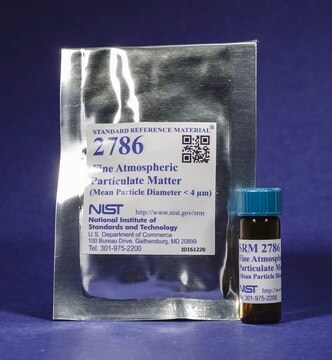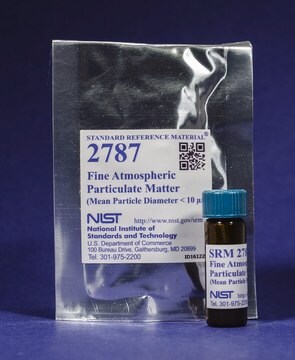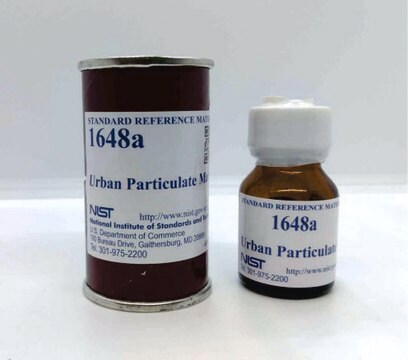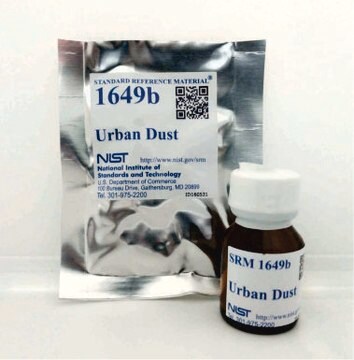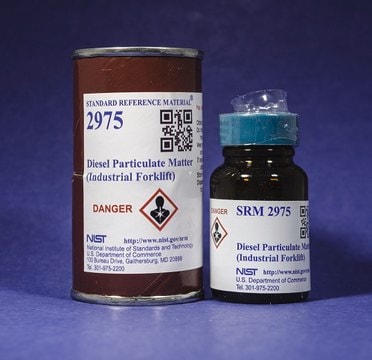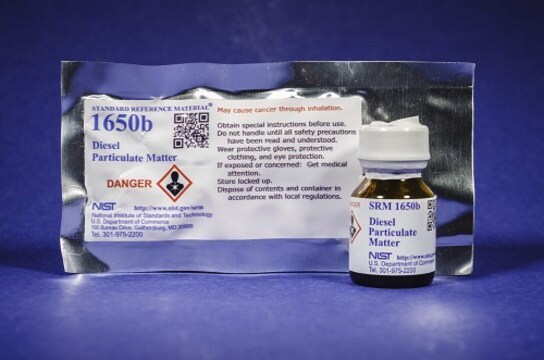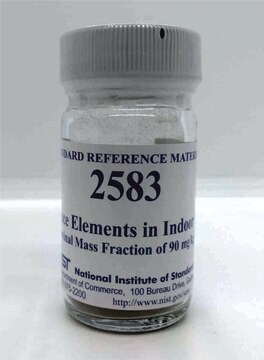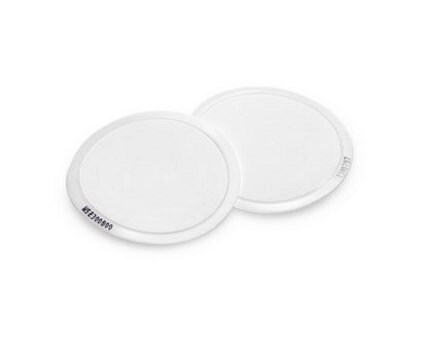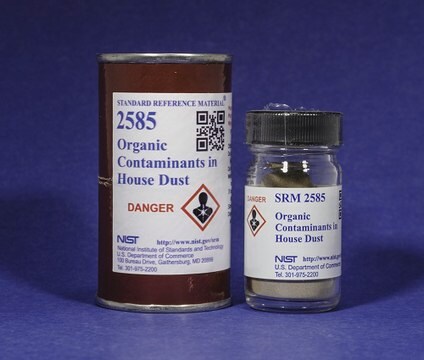ERMCZ120
Fine dust (PM10-like) (trace elements)
ERM®, certified reference material
About This Item
Produits recommandés
Qualité
certified reference material
Agence
ERM®
Fabricant/nom de marque
JRC
Application(s)
environmental
Format
matrix material
Application
- Seasonal changes and respiratory deposition flux of PM2.5 and PM10 bound metals in Dhaka, Bangladesh: Investigating the seasonal variability of trace elements in PM10-like particles, this research underscores their respiratory impacts in urban settings. It offers a detailed analysis crucial for biochemical researchers focused on the implications of environmental pollution on public health (Moniruzzaman et al., 2022).
- Mass size distributions, composition and dose estimates of particulate matter in Saharan dust outbreaks: This study evaluates the mass size distributions and composition of PM10 during Saharan dust events, providing essential data for environmental scientists and public health officials. It′s particularly valuable for those studying the transport and deposition of dust-bound trace elements across large geographical areas (Gini et al., 2022).
- Insights into Elemental Composition and Sources of Fine and Coarse Particulate Matter in Dense Traffic Areas in Toronto and Vancouver, Canada: Analyzing the elemental composition of fine and coarse particulate matter, this research aids in understanding the sources and potential health effects of urban air pollution, emphasizing the role of trace elements in environmental and pharmaceutical pollution studies (Celo et al., 2021).
- Seasonal variation and sources of carbonaceous species and elements in PM2.5 and PM10 over the eastern Himalaya: This detailed study on the variability of PM10-like fine dust in the eastern Himalaya offers insights into the sources and impacts of particulate matter, supporting researchers engaged in environmental science and pharmacological studies on inhalable particulates (Sharma et al., 2021).
Remarque sur l'analyse
ERMCZ120
Informations légales
Mention d'avertissement
Danger
Mentions de danger
Conseils de prudence
Classification des risques
STOT RE 1 Inhalation
Code de la classe de stockage
6.1D - Non-combustible acute toxic Cat.3 / toxic hazardous materials or hazardous materials causing chronic effects
Classe de danger pour l'eau (WGK)
WGK 3
Point d'éclair (°F)
Not applicable
Point d'éclair (°C)
Not applicable
Faites votre choix parmi les versions les plus récentes :
Certificats d'analyse (COA)
Désolés, nous n'avons pas de COA pour ce produit disponible en ligne pour le moment.
Si vous avez besoin d'assistance, veuillez contacter Service Clients
Déjà en possession de ce produit ?
Retrouvez la documentation relative aux produits que vous avez récemment achetés dans la Bibliothèque de documents.
Les clients ont également consulté
Notre équipe de scientifiques dispose d'une expérience dans tous les secteurs de la recherche, notamment en sciences de la vie, science des matériaux, synthèse chimique, chromatographie, analyse et dans de nombreux autres domaines..
Contacter notre Service technique
